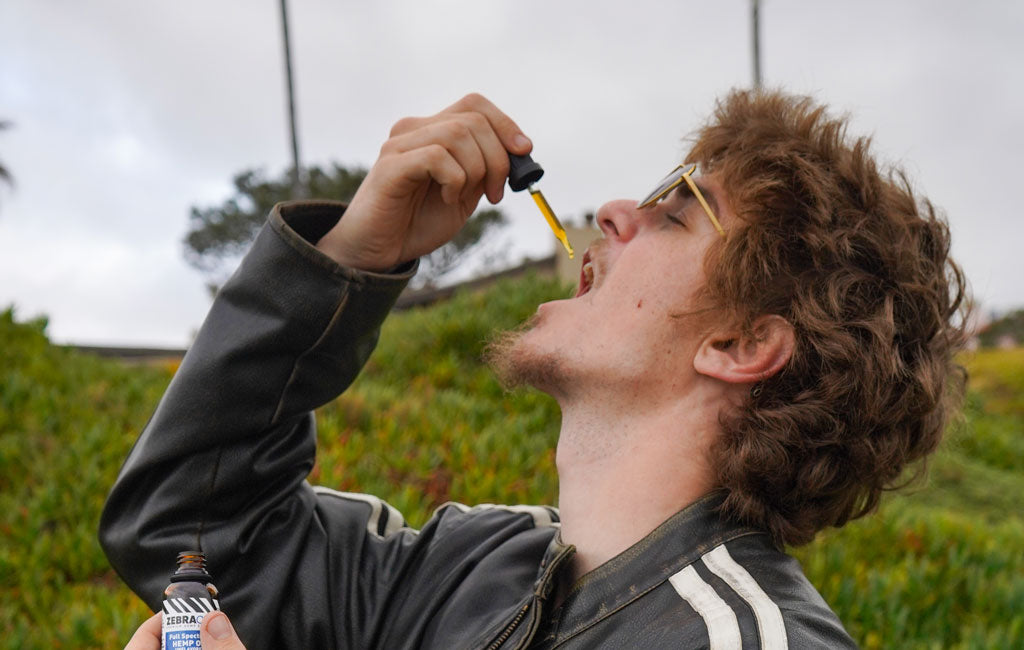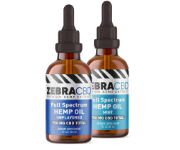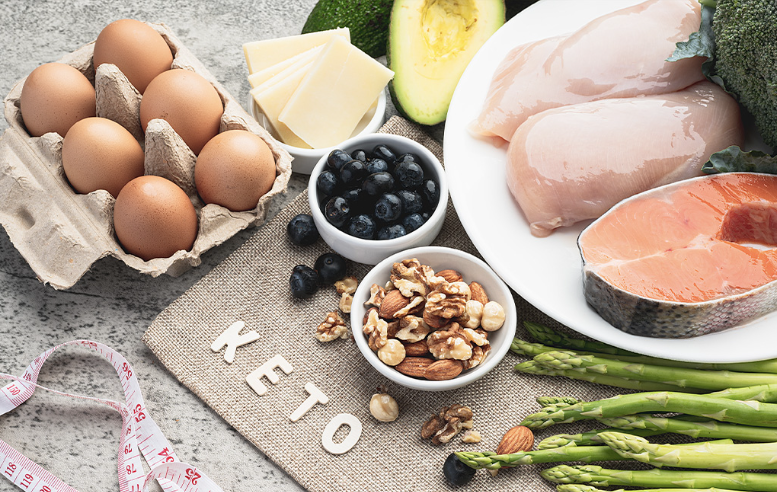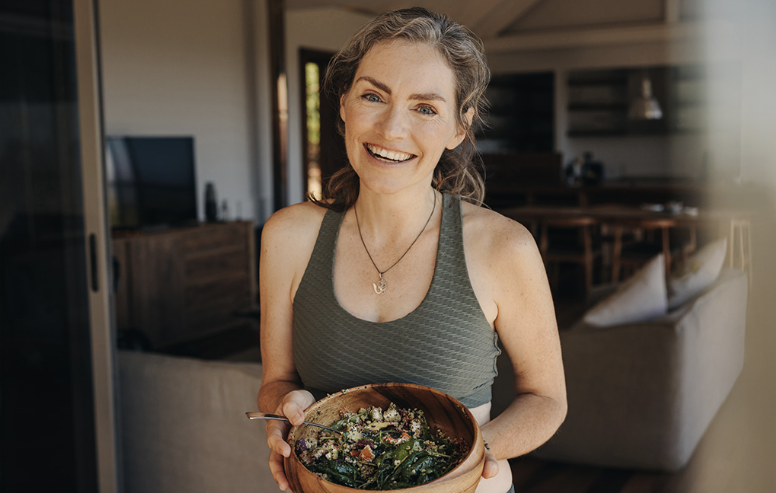
You’ve probably heard the buzz around CBD.
In the brief few years since the passage of the 2018 Farm Bill — which legalized hemp-based cannabinoids — the market has boomed. According to Statista, in 2022, sales of CBD products reached 4.17 billion, and approximately one in four American adults used CBD as an integral facet of their health, wellness and vitality routine.
Even so, if you’re new to this space, you might be curious about the safety and efficacy of CBD use, asking questions like “can you overdose on CBD oil?”
In short, yes, and no. You may be able to overdose on CBD. But, it wouldn’t be fatal. A better way to describe a CBD overdose would be akin to food poisoning.
By taking the time to carefully read the label, ask questions and do your research, you can significantly minimize the possibility of having an adverse reaction to a CBD product.
What do we mean by that? Read on to find out.
Can You Overdose on CBD?
Can you overdose on water?
Technically, it is possible to drink so much water, and at such a fast rate, that the amount of water in the body exceeds the body’s ability to expel it. This is known as hyponatremia, or water intoxication, which infrequently occurs in athletes or people who consume illegal substances like MDMA.
But for that to occur, you have to drink a lot of water.
The same concept applies to CBD — except a CBD “overdose” is much less of a threat to a person’s long-term health than water, seeing as there have been zero documented cases of a fatality from taking too much CBD. According to FHE Health:
“It is estimated that an average male who weighs 180 lbs would need to ingest more than 33 tablespoons of CBD oil in one sitting to qualify as “overdosing” on CBD. As a further perspective, a typical dose is 1/8 of a teaspoon.”
In other words, a person would need to ingest 2,529,500% more CBD than their recommended dose. And, over the years, there have been several cases where people have — both wittingly and unwittingly — tested this upper limit.
A CBD “Overdose” Case StudyPer Healthline, in 2019, a 56-year-old man with no history of substance abuse or prior medical conditions went to the emergency room after his coworkers found him delirious, vomiting and slurring his speech.
He had legally purchased CBD gummies from a gas station — his first mistake — hoping the CBD would relieve a recent back injury. He then proceeded to consume two entire packages of the gummies, totaling 370 mg CBD — his second mistake — when the recommended dosage was 30 mg.
After assessing his condition, the ER team provided:
- IV
- Oxygen
- Antiemetics
- Consistent stimulation
Despite his decision to ignore the recommended dosage and purchase the CBD from a questionable source, his health fully recovered by the next day, and there were no lingering negative side effects. While he experienced some unwanted side effects from consuming the CBD gummies, he did not experience a lethal overdose. If you are concerned about experiencing similar adverse side effects, consider starting with a low dose before increasing your CBD use.
In the aftermath, doctors weren’t even sure if CBD was to blame, saying it could have easily been caused by unknown contaminants in the gas station CBD. Their doubts are reasonable, seeing as there have been several documented human trial studies where patients received CBD doses of up to 1,000 mg without experiencing any acute side effects or adverse effects.
This is why it’s vital to know your CBD source (but more on that later).
What Happens if a Person Takes Too Much CBD?
When most people hear overdose, their thoughts naturally drift to an alcohol or drug overdose, which can be serious, if not fatal.
In that context, taking too much CBD would more closely resemble a case of bad food poisoning, particularly since CBD doesn’t cause intoxication like other substances and there have been zero fatalities directly linked to CBD isolate consumption. So, does CBD stay in your system ? Yes, it does but how long it will stay there will depend on your body’s composition among other factors.
According to the World Health Organization: “In humans, CBD exhibits no effects indicative of any abuse or dependence potential…. To date, there is no evidence of public health-related problems associated with the use of pure CBD." While high doses of pure CBD will have adverse effects on your body in the short term, a CBD overdose is far from fatal. Large doses of CBD gummies, CBD tinctures, oils or other forms will not cause a lethal overdose, but will have some unpleasant side effects. Follow packaging instructions and current drug safety guidelines to confidently avoid adverse side effects when taking CBD capsules, gummies, oils, or other CBD products.
That said, just because it may be difficult to overdose, doesn’t mean taking an extremely high dose of CBD isolate won’t result in any negative effects. Even if you bought them in gummy form, CBD gummy dosage recommendations are provided for a reason, after all — as the man in the case study above discovered to his dismay. Follow the CBD guide on the packaging of your product to avoid a toxic dose .
In the few instances where consumers have taken an extremely high dose of CBD, the documented adverse effects included:
- Fatigue and drowsiness
- Dry mouth
- Vomiting or diarrhea
- Changes in appetite
- Dizziness
- Irritability
- Agitation
- Deliriousness
The Importance of Using Quality CBD: Knowing Your Source Is Key
A high-quality, hemp derived CBD is widely considered by medical experts to be safe, effective and well-tolerated for the vast majority of adults, even when taken in higher than recommended doses.
But here’s the caveat: it needs to be a high-quality, hemp-based CBD.
That may seem an obvious point, but in the wild-west of the unregulated CBD market, it can be incredibly difficult to know whether the product you’re taking actually contains what its label claims.
In other words, it’s entirely possible that the CBD you purchase at a gas station might not come from a trustworthy source.
This lack of transparency and accuracy is an industry-wide issue. According to John Hopkins School of Medicine, a 2020 study reviewing more than 105 CBD products found that more than 60% of the companies' labeling was inaccurate:
- Only 89 (85%) of the 105 tested products listed the total amount of CBD in milligrams on the label. Of these:
- 16 (18%) contained less CBD than advertised
- 52 (58%) contained more CBD than advertised
- 21 (24%) were accurately labeled.
- THC was detected in 37 (35%) of the 105 products, though all were within the legal limit of 0.3%.
- Four (11%) of those 37 were labeled “THC free”
- 14 (38%) stated they contained less than 0.3% THC
- 19 (51%) did not reference THC on the label
Put simply, you need to know your CBD source to prevent any negative side effects and ensure your CBD products have the desired effect . If you are concerned about the quality of your CBD supplement, consider contacting a healthcare professional .
How Can You Ensure You Only Buy High-Quality CBD Oil?
Being precautious with any substance is wise, and pure CBD is no exception. But what questions can you ask to ensure that you’re buying from a trustworthy CBD supplier?
Here are a few ways to screen your potential CBD source:
- Do they voluntarily provide third-party testing information on their site? – A CBD company should be honest and transparent about its products. The best way they can do that is with a Certificate of Analysis (CoA), which is issued by an ISO-compliant third-party lab. A CoA verifies that the product is free of harmful substances and meets CBD and THC content claims.
- Where and how is the hemp grown? – Is your product grown and extracted in the US? If not, it won’t be subject to state or federal testing and standards regulations. Currently, the nation’s top hemp growers tend to be in Colorado, Oregon, California and Kentucky.
- How is the product extracted? – For a high-quality CBD product, extraction methods matter deeply, seeing as some unscrupulous CBD companies will cut costs by using toxic solvents for extraction. You should only purchase a product that uses either ethanol extraction or supercritical CO2 extraction.
- Does the product make medical claims? – Any CBD product that makes medical claims should be taken with a massive dollop of salt. Currently, it’s illegal to make specific medical or disease claims with a CBD product, unless the product has been certified by the FDA as a prescription medication. (To this date, there is only one FDA-approved CBD product on the market.)
- Is the dosage clearly listed on the label? – The label should provide clear indications about the CBD dosage, bottle size, serving size, type of CBD and THC contents. It should also give easy-to-follow directions for taking or using the product.
By taking the time to carefully read the label, ask questions and do your research, you can significantly minimize the possibility of having an adverse reaction to a CBD product.
What to Do in an Emergency
As mentioned, while CBD consumption is generally well-tolerated, rare reactions or contaminated products can lead to potential side effects. If someone experiences severe side effects such as confusion, hallucinations, loss of consciousness or other unusual reactions, follow these steps:
- Seek immediate medical help - Call emergency services or visit the nearest hospital if symptoms appear life-threatening.
- Provide product details - Bring the CBD product packaging to assist medical professionals in understanding potential contaminants or dosages involved.
- Administer basic care - Keep the person hydrated and ensure they are in a safe environment until medical help arrives.
- Report adverse reactions - Once stabilized, report the issue to the product’s manufacturer and appropriate regulatory authorities to prevent future incidents.
What Are the Benefits of CBD?
Incorporating a high-quality, trustworthy CBD product into your health, wellness and vitality routine can foster several tangible benefits, including:
- May ease aches and discomfort – If you experience regular aches or discomfort, especially those associated with exercise, a combination of oral and topical CBD may help ease discomfort, speed up recovery and enhance daily performance.
- May support deep and restful sleep – Sleep is essential for your physical and mental health. Incorporating CBD into your night routine — especially a sleep-centric CBD with ingredients like melatonin, valerian root and chamomile — may calm the mind, ease the body and help you achieve deep sleep.
- May ease nerves – Daily life is full of stress. Taking CBD won’t remove the causes of that stress, but it may help you remain calm and stay focused despite all the chaos and noise around you.
- May provide an energy boost – If you hit the afternoon wall, a CBD dose packed with Vitamin B may give you the boost you need — and do so without the caffeine jitters. Try taking CBD oil for energy in the morning with a CBD coffee, CBD tea or on its own.
Safe, Effective, Trustworthy — Zebra CBD
Generally speaking, you won’t experience lethal overdoses from CBD so long as you follow the recommended dose instructions and only purchase your CBD from a trustworthy source.
For that, there’s Zebra CBD. Every one of our high-quality, hemp derived CBD products is third-party lab-tested and stamped with our label of accuracy guarantee. Find premium CBD topicals and CBD edibles, from hemp pills to CBD gummies for sale.
When you take Zebra CBD, you know exactly what you’re getting.
Want to learn more about how we grow, test and manufacture our products? Visit Zebra CBD today.
Sources:
- Statista. Dollar Sales of Cannabidiol Products in the United States from 2022 to 2026. https://www.statista.com/statistics/1067467/cbd-product-dollar-sales-us/
- Statista. Estimated annual CBD usage rate in the United States from 2018 to 2024. https://www.statista.com/statistics/1065834/annual-cbd-usage-rate-us/
- Healthline. Yes, You Can Take Too Much CBD — Here’s What Happens. https://www.healthline.com/health/cbd-overdose
- Journal of Clinical Medicine Research. Dosage, Efficacy and Safety of Cannabidiol Administration in Adults: A Systematic Review of Human Trials. https://www.researchgate.net/publication/339622635_Dosage_Efficacy_and_Safety_of_Cannabidiol_Administration_in_Adults_A_Systematic_Review_of_Human_Trials
- Harvard Health. Cannabidiol (CBD): What we know and what we don't. https://www.health.harvard.edu/blog/cannabidiol-cbd-what-we-know-and-what-we-dont-2018082414476
- John Hopkins School of Medicine. Study Shows Widespread Mislabeling of CBD Content Occurs for Over-the-Counter Products. https://www.hopkinsmedicine.org/news/newsroom/news-releases/study-shows-widespread-mislabeling-of-cbd-content-occurs-for-over-the-counter-products
- Medical News Today. Is it possible for a person to take too much CBD? https://www.medicalnewstoday.com/articles/can-you-take-too-much-cbd










